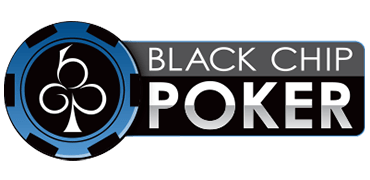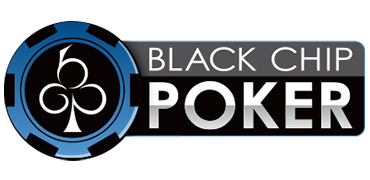The creator of the first solver, Oleg Ostroumov, just did a podcast with Daniel "Jungleman" Cates.
If you don't already know who Oleg is, you should check out the interview we published with him in 2023. He created the first Holdem solver, propelling the game to another level and making a nice profit along the way.
Oleg became a guest on Daniel Cates' podcast in early 2024 and filled in some of the blanks about his revolutionary tool.
The "Priest of Nash Equilibrium", whose solver was used by the world's strongest players, reveals details of the business that were kept secret for many years.
– (Daniel) You were one of the first ones to the Holdem scene making solvers to the best of my knowledge.
– As far as I know, no one had made solvers for No-Limit Hold'em before me. Some programs already existed, but were of only scientific interest. They were created to participate in the annual poker bot competition. Some groups wrote software specifically for this, but these solvers had no practical use. They were not suitable for studying theory.
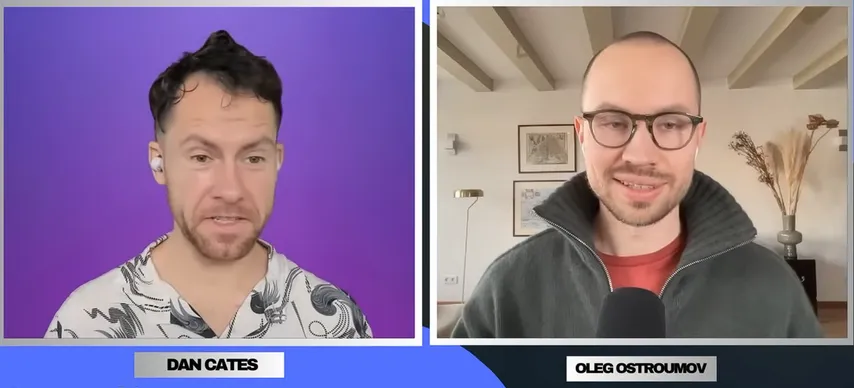
At first, I was convinced that it was enough to simply calculate the balance, but I quickly realized that a good interface is equally vital. For example, Alex "Kanu" Millar first asked me to add the ability to play against a solver, because this is one of the most effective ways to learn. Other players also constantly bombarded me with questions: “How often should I perform this or that action with this hand on the turn,” and so on. Not all of their requests and questions made sense, but they helped me add many useful features.
– How significant was your solver to those players' progress?
– It was difficult to evaluate the result, because my main clients – Alex, Raul and Trueteller – were already among the strongest players in the world. We signed a contract for 1.5 years with monthly payments. No one refused to pay, which means they were quite happy with the software.
I think the solver definitely gave them more confidence in their abilities, they started playing more with other regs and moved up the limits.
– How difficult was it to convince players that the solver would be useful to them?
– There were many skeptics. For example, in 2012, Tom Dwan openly wrote on 2+2 that he does not believe in GTO in poker.
Trueteller was finally convinced by one specific line that the solver used. On a paired turn with a gutshot or flush draw, a player out of position should bet if he check-called on the flop. This is done to balance trips and semi-bluffs. In practice, no one used such a line, but Trueteller had already suspected that this was the right play.
Alex Millar also immediately became interested, because he was already trying to find a way to find those who could develop such software and even hired some programmers. They didn't succeed, but Alex was sure it was possible.
I also noticed a funny thing when I was looking for clients. The strongest players who had already tried to get closer to GTO lines showed the greatest interest in the solver. To understand the logic of the solver, you need to have some idea about it. First, I offered the solver to online regs I knew from NL2k, they replied that it gave some random results, and they didn’t understand what to do with it.
- GipsyTeam's unique promotions
- Help with deposits and cashouts
- Access to private freerolls
- Round-the-clock support
- GipsyTeam's unique promotions
- Help with deposits and cashouts
- Access to private freerolls
- Round-the-clock support
- GipsyTeam's unique promotions
- Help with deposits and cashouts
- Access to private freerolls
- Round-the-clock support
- Уникальные акции от GipsyTeam
- Помощь с депозитами и кешаутами
- Доступ в закрытые фрироллы
- Круглосуточная поддержка
- Уникальные акции от GipsyTeam
- Помощь с депозитами и кешаутами
- Доступ в закрытые фрироллы
- Круглосуточная поддержка
- GipsyTeam's unique promotions
- Help with deposits and cashouts
- Access to private freerolls
- Round-the-clock support
- Уникальные акции от GipsyTeam
- Помощь с депозитами и кешаутами
- Доступ в закрытые фрироллы
- Круглосуточная поддержка
- GipsyTeam's unique promotions
- Help with deposits and cashouts
- Access to private freerolls
- Round-the-clock support
- GipsyTeam's unique promotions
- Help with deposits and cashouts
- Access to private freerolls
- Round-the-clock support
- GipsyTeam's unique promotions
- Help with deposits and cashouts
- Access to private freerolls
- Round-the-clock support
- GipsyTeam's unique promotions
- Help with deposits and cashouts
- Access to private freerolls
- Round-the-clock support
- GipsyTeam's unique promotions
- Help with deposits and cashouts
- Access to private freerolls
- Round-the-clock support
- GipsyTeam's unique promotions
- Help with deposits and cashouts
- Access to private freerolls
- Round-the-clock support
- GipsyTeam's unique promotions
- Help with deposits and cashouts
- Access to private freerolls
- Round-the-clock support
- GipsyTeam's unique promotions
- Help with deposits and cashouts
- Access to private freerolls
- Round-the-clock support
- GipsyTeam's unique promotions
- Help with deposits and cashouts
- Access to private freerolls
- Round-the-clock support
- GipsyTeam's unique promotions
- Help with deposits and cashouts
- Access to private freerolls
- Round-the-clock support
- GipsyTeam's unique promotions
- Help with deposits and cashouts
- Access to private freerolls
- Round-the-clock support
- GipsyTeam's unique promotions
- Help with deposits and cashouts
- Access to private freerolls
- Round-the-clock support
- GipsyTeam's unique promotions
- Help with deposits and cashouts
- Access to private freerolls
- Round-the-clock support
- GipsyTeam's unique promotions
- Help with deposits and cashouts
- Access to private freerolls
- Round-the-clock support
- GipsyTeam's unique promotions
- Help with deposits and cashouts
- Access to private freerolls
- Round-the-clock support
- Уникальные акции от GipsyTeam
- Помощь с депозитами и кешаутами
- Доступ в закрытые фрироллы
- Круглосуточная поддержка
- GipsyTeam's unique promotions
- Help with deposits and cashouts
- Access to private freerolls
- Round-the-clock support
- GipsyTeam's unique promotions
- Help with deposits and cashouts
- Access to private freerolls
- Round-the-clock support
- GipsyTeam's unique promotions
- Help with deposits and cashouts
- Access to private freerolls
- Round-the-clock support
- GipsyTeam's unique promotions
- Help with deposits and cashouts
- Access to private freerolls
- Round-the-clock support
- GipsyTeam's unique promotions
- Help with deposits and cashouts
- Access to private freerolls
- Round-the-clock support
- GipsyTeam's unique promotions
- Help with deposits and cashouts
- Access to private freerolls
- Round-the-clock support
- Уникальные акции от GipsyTeam
- Помощь с депозитами и кешаутами
- Доступ в закрытые фрироллы
- Круглосуточная поддержка
- GipsyTeam's unique promotions
- Help with deposits and cashouts
- Access to private freerolls
- Round-the-clock support
- GipsyTeam's unique promotions
- Help with deposits and cashouts
- Access to private freerolls
- Round-the-clock support
- Уникальные акции от GipsyTeam
- Помощь с депозитами и кешаутами
- Доступ в закрытые фрироллы
- Круглосуточная поддержка
- GipsyTeam's unique promotions
- Help with deposits and cashouts
- Access to private freerolls
- Round-the-clock support
- Уникальные акции от GipsyTeam
- Помощь с депозитами и кешаутами
- Доступ в закрытые фрироллы
- Круглосуточная поддержка
- Уникальные акции от GipsyTeam
- Помощь с депозитами и кешаутами
- Доступ в закрытые фрироллы
- Круглосуточная поддержка
- GipsyTeam's unique promotions
- Help with deposits and cashouts
- Access to private freerolls
- Round-the-clock support
- GipsyTeam's unique promotions
- Help with deposits and cashouts
- Access to private freerolls
- Round-the-clock support
- GipsyTeam's unique promotions
- Help with deposits and cashouts
- Access to private freerolls
- Round-the-clock support
- Уникальные акции от GipsyTeam
- Помощь с депозитами и кешаутами
- Доступ в закрытые фрироллы
- Круглосуточная поддержка
- GipsyTeam's unique promotions
- Help with deposits and cashouts
- Access to private freerolls
- Round-the-clock support
- GipsyTeam's unique promotions
- Help with deposits and cashouts
- Access to private freerolls
- Round-the-clock support
- GipsyTeam's unique promotions
- Help with deposits and cashouts
- Access to private freerolls
- Round-the-clock support
- GipsyTeam's unique promotions
- Help with deposits and cashouts
- Access to private freerolls
- Round-the-clock support
- Уникальные акции от GipsyTeam
- Помощь с депозитами и кешаутами
- Доступ в закрытые фрироллы
- Круглосуточная поддержка
- GipsyTeam's unique promotions
- Help with deposits and cashouts
- Access to private freerolls
- Round-the-clock support
- GipsyTeam's unique promotions
- Help with deposits and cashouts
- Access to private freerolls
- Round-the-clock support
Solving 2-7 Triple Draw
– Trueteller once told me that 2-7 had a lot of action and it would be very profitable to solve this game. “You’ll earn a million,” Timofey promised, and it immediately became clear that he was speaking completely seriously. I was overcome with euphoria because at that time, I had never even dreamed of such large amounts of money. So, I made a solver and sold it to Trueteller and Raul. I can confidently say that we have succeeded.
As I already said, in Hold'em it was very difficult to evaluate progress, and in 2-7, my clients did not play at all before the solver. With help, they became the best in the world. The action centered around Gus Hansen at the $2k/$4k tables, but they also had time to play with other regulars. After a year and a half, no one played with Raul anymore. Due to the exchange of cards, 2-7 is more difficult to calculate than Holdem. We know our discarded cards, but our opponent only knows their number. I wrote a solver exclusively for heads-up play, which was the main action. But for 6-max it could also be used, with some restrictions. For example, it was possible to obtain an optimal defense strategy for the big blind by setting preflop ranges.

Oleg's Earnings
– Thanks to the solver, I actually made my first million. At first we agreed that I would have 40% of the results in 2-7, but then we reduced my share. I couldn't get 40% of their profits since they were playing $2k/$4k and my bankroll was around $100k. There was also a fixed payment option, but in 2-7 there was too much variance, and the action could stop at any moment. As a result, we settled on a rather complex scheme. Every six months we studied Trueteller's database, wrote down a list of opponents and how many hands he played with them, and estimated the real win rate against each. Then they calculated my “fair” percentage, taking into account the fact that I should receive 40% of the expectation, but at the same time I would not risk anything if it suddenly turned into a minus. That is, we wanted to avoid situations where he loses to some opponents, wins against others, and through this freeroll, I receive some obviously unfair percentage of his profit.
Money quickly went to my head. In 2012, I myself played poker professionally with a bankroll of $20k, and by the end of 2014 I already had that same million. I just didn't know what to do with that kind of money. My life did not change in any way, I continued to live in a Moscow apartment and did not plan to make large purchases. It seemed that I had provided for myself for the rest of my life. All this led to a loss of motivation, I didn’t want to do anything, I stopped striving for new knowledge. I played Dota all day long and played about 2,000 hours in 2014.
Two circumstances helped to cope with this condition.
Firstly, I realized that being paid decently for my work gives me the feeling that I am doing something good and useful.
Secondly, to understand the value of money, you need to learn how to spend it. When I crossed this threshold, I wanted to work again and earn even more.
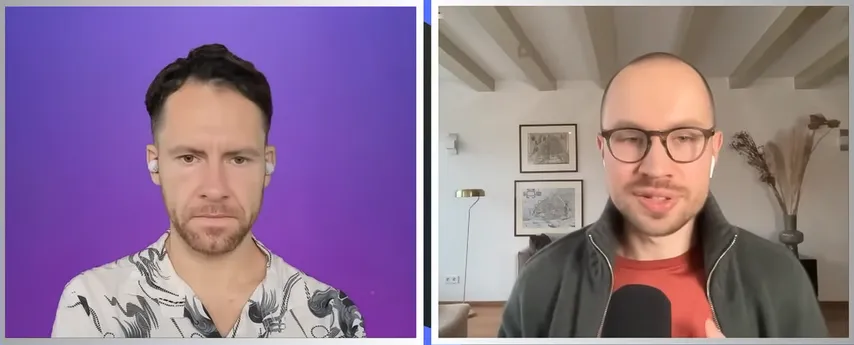
Life is not very interesting when you know that you have money for the next 30 years and can do nothing. For a long time I also drove away the thought that there are thousands of people in the world much more successful than me – players, businessmen, and at least the creators of public solvers, for example, GTO Wizard. By the way, they have an amazing product and, according to rumors, they made a lot of money from it. But then, on the contrary, I convinced myself that this should serve as an example for me. Even when I made my first million, I wasn't the richest or the smartest. It would take years of work and a lot of risky decisions before I could even get close to that. Such thoughts are sobering.
In a thread on 2+2, Alex “Kanu7” Millar shared his memories of working with Oleg’s solver:
"Enjoyed watching that interview. Perhaps an interesting fact considering that I was apparently one of the very first people in the world to have access to a solver is that I did very little HU solver analysis in my whole career. By the time I got access to Oleg's solver, I could only really get HU action from sauce and ike (jungle wasn't playing on stars at that point in time and this was before Doug rose right to the top so he'd taken a few losing shots at me but didn't really play me). I knew sauce and his dad entered bots in the computer bot competition and I had an inkling that Ike might have a solver or at least be developing one so I thought if I used it to work on HU, I'd just be in a solver battle vs sauce and Ike, which didn't sound too appealing. I haven't had confirmation either way from them about it, but it sounds like they may have not had access to a solver at that point in time, so maybe it would have been worth my while. I knew about the academic papers posted on solvers though so I assumed some of the other top guys must be doing something in that direction too but perhaps I overestimated how well people were doing with it.
Anyway, I decided to focus on 6 max and did an absolute ton of work with one other guy looking at a bunch of 6max spots. If I remember right we were paying Oleg for each flop studied to some degree and each calculation took days so we were trying to run the minimum spots initially and spent a lot of time and effort extracting concepts, often to find that there was a flaw in our thinking when some other situation didn't play as we expected. We wrote well over a hundred k words of analysis (maybe much more, I can't remember) in total and definitely did pretty well in that period of time before public solvers came out.
It's probably hard to imagine these days, now that so much coaching material has been published using solvers but it was pretty overwhelming initially. All of a sudden we just had access to huge amounts of information and had to work out what to focus on, how to take concepts from it, how to implement any of it in our games. I remember the first thing I did was decide I was going to work things out in detail to get a full understanding of the game and spent a while trying to work out why was betting so much more than on the first flop I looked at etc. Quickly abandoned that approach after writing pages on one flop and then realizing there were now 40+ turns to analyze and then thousands of rivers just from that one flop. Nowadays you could probably get as much info from an hour long coaching video as we could get from a month of analysis but there were some fairly crucial early insights we had which definitely gave us a nice edge on the competition for a while."
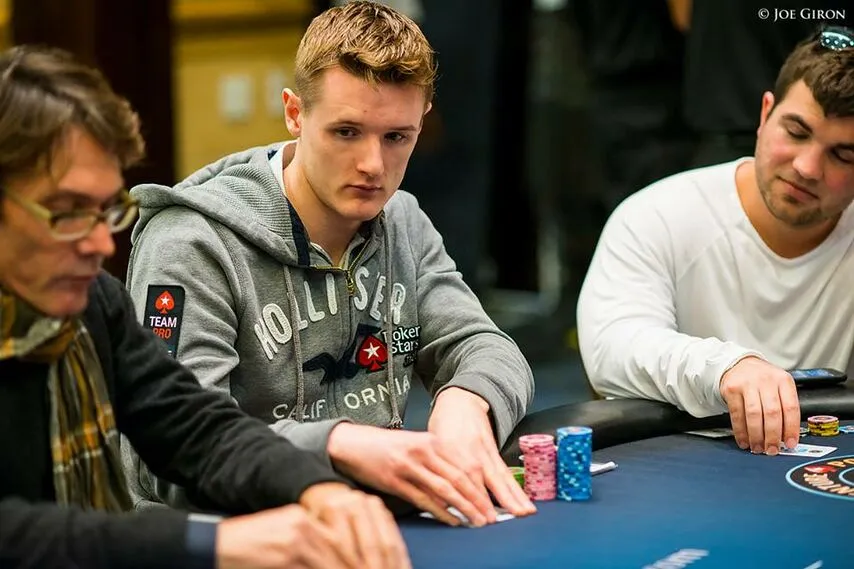
"I came up through the stakes in the pre-GTO awareness era, never mind pre-solvers, so I reached 25/50 without even knowing what a Nash Equilibrium was. Then I learned about that side of the game and made the breakthrough to being one of the very best HU players in the world by being ahead of the curve in thinking about GTO concepts and trying to apply them the best I could but without having any sort of confirmation as to what was correct. I guess I look back on that time nostalgically as the "best" time for poker but that's no doubt heavily influenced by personal bias.
There was lots more action though because people had very different ideas of what was correct so it was kind of a battle of ideas at the tables and the skillset needed to be one of the best was to think correctly about the ideas and then find ways to implement them successfully while exploiting your opponents mistakes. Memorizing ranges was not really my strength or interest so the top players these days no doubt play far more accurately than I ever did or would have done if I continued. I'm sure they think the game is great these days because it suits their strengths, it's all just personal opinion I guess.
I think I was on board with the solver's accuracy pretty quickly, I can't remember all the reasons for that and their weightings but I know I was a bit familiar with the academic research on the topic and I knew Oleg had used that research in the solver. I also imagine it confirmed some of the things that I had been working out independently, similarly to Oleg's description of Trueteller and turn leading when the board pairs. Once I got into looking at it and started to see new things and then work out why they were correct theoretically, then confidence is sky high of course. Before this point in time, pretty much everyone had a standard c-bet size I think which didn't vary by board texture. Seeing the different sizes, when they were used and working out it had to do with how the ranges interacted with each other was a pretty big learning moment."


















